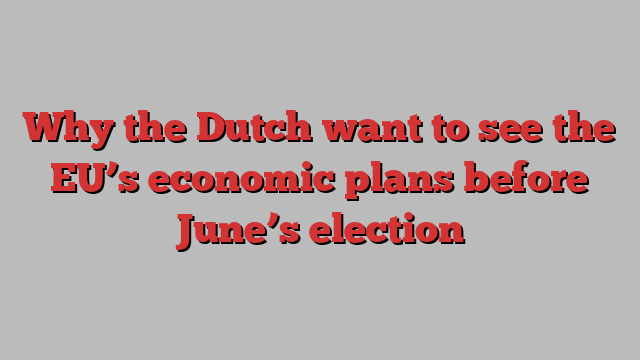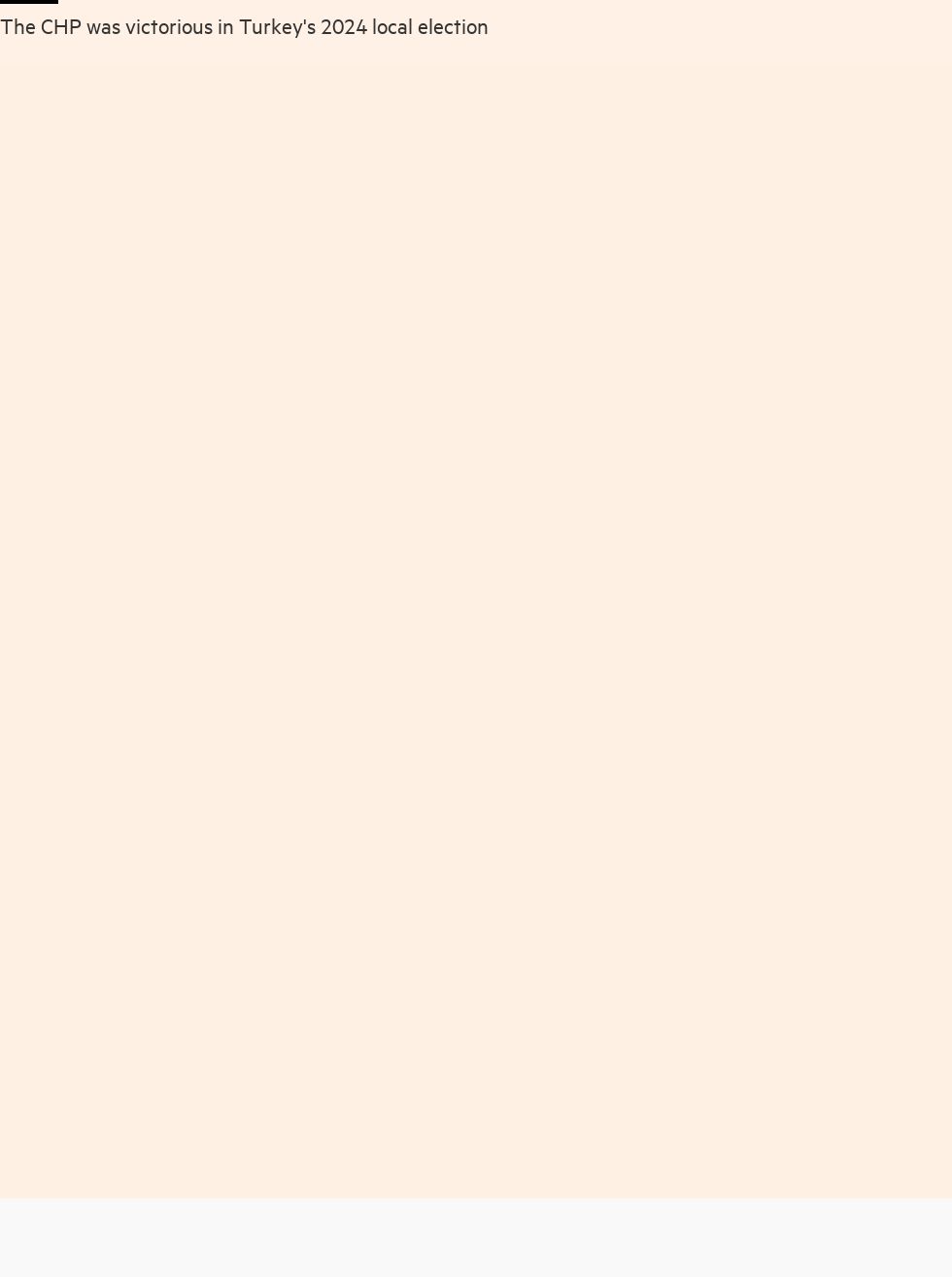
Stay informed with free updates
Simply sign up to the EU economy myFT Digest — delivered directly to your inbox.
This article is an on-site version of our Europe Express newsletter. Sign up here to get the newsletter sent straight to your inbox every weekday and Saturday morning
Good morning and welcome back. I hope you all had a great Easter weekend.
Today, our Netherlands correspondent reveals the rising angst in The Hague at Brussels’ potential economic plans, and I preview a meeting of six EU leaders in Lithuania aimed at reassuring the vulnerable Baltic nation.
Wrong timing
Voters will be cheated in European parliament elections unless Mario Draghi’s report on European competitiveness, which will map out policies for the next five years, is published beforehand, senior Dutch politicians have said in a letter seen by Andy Bounds.
Context: Commission president Ursula von der Leyen, who is seeking a second term running the EU’s executive, has asked the former Italian premier to come up with a blueprint to improve the bloc’s industrial competitiveness and handle the green transition without damaging its economy.
Now Pieter Omtzigt, who will probably play a key role in the next Dutch government, and Dirk Gotink, his party’s lead candidate in the elections from June 6 to 9, have written to von der Leyen to urge her to hurry delivery.
“The report will only see the light after the elections, which means that a proper policy debate will be avoided during the election campaign. That is unacceptable,” they wrote, citing media reports it will not appear until the end of June.
“The democratic fundaments of the union are already weak and will be further weakened if such far-reaching proposals are only put forward after the elections. Instead we must give people a greater say in the political direction of the EU,” they added.
The Dutch are particularly exercised about remarks from the former ECB president at a meeting of EU finance ministers in Ghent in February.
Draghi said the EU “must find enormous amounts of money in a relatively short time”. Media reports talked of a funding gap of €500bn, with Draghi urging the use of more joint borrowing.
The Hague fiercely resisted the NextGenerationEU pandemic recovery fund before finally relenting. Omtzigt, whose new party has applied to join von der Leyen’s EPP, said that should be a one-off.
Debt repayments of almost €1bn annually for the Netherlands will start after 2028 and continue until around 2058. Thanks to increasing interest rates, “the Netherlands will pay out €35bn for its €4.7bn from the NGEU” the letter states. Most of it has gone to countries such as Spain and Italy.
Omtzigt and Gotink have also asked von der Leyen a series of questions, including whether she wants new common debt funding (for example for defence spending) and whether she will cut regulation for business as she has promised several times.
Expect the answers after June 9.
Chart du jour: Defeated

Turkey’s strongman leader Recep Tayyip Erdoğan misjudged voter anger over the economy and the threat from the opposition in local polls, our Turkey team explain in this analysis of the mis-steps behind his electoral defeat.
Confidence building
Six EU leaders will gather in Lithuania today in a show of support to the Baltic nation amid jitters over eastern Europe’s security in light of Russia’s war against Ukraine — and increasingly frequent warnings that President Vladimir Putin doesn’t intend to stop his tanks there.
Context: As Moscow continues to wage war against Kyiv, European leaders and their ministers have begun warning that the Kremlin’s war economy could target a Nato member state by the end of the decade. The Baltic states of Estonia, Latvia and Lithuania are seen as possible targets given their small size and historical links to Moscow.
Lithuania’s President Gitanas Nausėda will host a meeting with Dutch Prime Minister Mark Rutte, Czech Republic’s Petr Fiala, Sweden’s Ulf Kristersson, Bulgaria’s Nikolai Denkov and Charles Michel, president of the European Council.
While the participation of Michel gives this gathering an EU banner, much of the discussions are revolving around the role that Nato will play in the country’s defence, if required.
Indeed, Dutch and Czech soldiers are part of the Nato battlegroup stationed in Lithuania as part of the alliance’s “enhanced forward presence” strategy. Rutte will meet some of them before the leaders’ gathering, and last week the Netherlands announced it was sending Patriot air and missile defence systems to the country for exercises this summer.
“Russia’s new bloody terror in Europe is contributing to the growth of instability and threats around the world. However, we in Lithuania are calm because we know that we will never be alone again,” Nausėda said last week at an event to mark 20 years of Nato membership for his country. “We will always have a strong, supportive alliance family by our side.”
What to watch today
-
US Secretary of State Antony Blinken meets French President Emmanuel Macron in Paris.
-
Polish foreign minister Radosław Sikorski hosts New Zealand’s foreign minister Winston Peters in Warsaw.
Now read these
Recommended newsletters for you
Britain after Brexit — Keep up to date with the latest developments as the UK economy adjusts to life outside the EU. Sign up here
Chris Giles on Central Banks — Your essential guide to money, interest rates, inflation and what central banks are thinking. Sign up here
Are you enjoying Europe Express? Sign up here to have it delivered straight to your inbox every workday at 7am CET and on Saturdays at noon CET. Do tell us what you think, we love to hear from you: [email protected]. Keep up with the latest European stories @FT Europe